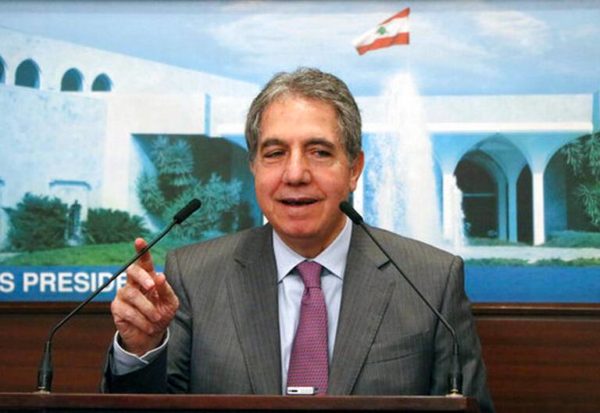Lebanon’s government has called on citizens residing in the country and its diaspora to send donations to four bank accounts to aid the country’s fight against coronavirus.

Minister of Information Manal Abdel Samad announced the scheme in a statement on 17 March, adding that the fund will be used “to face this crisis”.
The government is claiming that the collected funds will be distributed to people who cannot work during the nationwide lockdown, according to Abdel Samad.
The four accounts will receive donations in four currencies – Lebanese Lira, US Dollars, Euros and British Pounds.
The government has also announced plans to provide food aid to those in need, via local donors, and charities.
Abdel Samad added that “PM Diab spoke of the need to open a bank account for social aid donations aimed at helping citizens who have become out of work, and in this regard he announced that there are preparations to distribute food aid in the various regions, through the High Relief Council, municipalities or local donators”.
But according to analysts neither the residents nor the diaspora trust the government anymore . Analysts are of the opinion that the politicians will use the funds to line their pockets as they have been doing for decades .
In a somewhat related scheme Finance minister Ghazi Wazni told the Financial Times that the government is considering a plan. to rescue the failing banks at the expense of the depositors . The plan calls for converting part of the deposits to shares in these failing banks.
Wazni told Financial Times that the government was studying examples of other financial restructurings from Greece to Cyprus, with options “including a bail-in, where a portion of deposits are converted to shares in the bank.”
He claimed that without such reforms, deposits were at risk.
“To preserve the money of depositors, you need banking restructuring,” he said. Other measures being considered included freezing dollar deposits for up to six years before paying them back in Lebanese pounds and creating a fund of state assets that depositors have to buy into. “We have options,” Wazni said.
Wazni added that the government had been assembling a “comprehensive plan” to rescue the economy, whose gross domestic product he estimated to have shrunk by 4-5 percent last year.
To solve our problem we need the support of international funding,” Wazni said.
The irony here is that Wazni represents Speaker Nabih Berri’s Amal Movement in the cabinet of Hezbollah backed Hassan Diab an d Berri has repeatedly described the deposits in Lebanese banks as “sacred “.
Banks are thieves
According to analysts the Lebanese banks have been openly robbing the depositors . Say a depositor tries to withdraw $ 1000 from his or her account . The bank will not give the depositors the funds in US dollars . The bank gives the depositor the funds in Lebanese pounds based on the pegged exchange rate of 1507.5 LL per US dollar . The bank in the meantime sells US dollars to money exchangers at a black market rate of about 2500LL per US dollar . If the account holders want the funds in Dollars then they have to buy back their dollars at a rate exceeding 2500 LL . In other words the depositors lose at least 40 % of their money. So instead of getting $1000 , the depositor gets $600.
Corruption
Lebanon, run under a confessionalist power-sharing governance structure, has long been subject to nepotism, systematic patronage, judicial failures, electoral fraud, bribery, cronyism, and clientelism.
Transparency International ranked Lebanon the 138th least corrupt nation out of 175 countries in 2018. Corruption rankings in Lebanon averaged 115.25 from 2003 until 2018, reaching a peak of 143 in 2017, when the country was recovering from a period of political deadlock, and a record low of 63 in 2006.
Despite the existence of legislation requiring that the President of the Republic, the President of the Chamber of Deputies, and the President of the Council of Ministers, judges, and public servants to disclose their financial assets in a sealed envelope to their relevant councils, this information is not readily available to the public.
“In a country with $100 billion in debt, we do not see a single thief or corrupt [official] go to prison. Not one of them has been held to account or punished. No government will be able to do anything [about this] or arrest any of the criminals, or defend a single poor man” Journalist of An Nahar wrote in an article criticizing the country’s leaders titled ” Your Corruption Has Turned Lebanon Into Hell And Is Driving Its Citizens To Suicide. “

Leave a Reply
You must be logged in to post a comment.